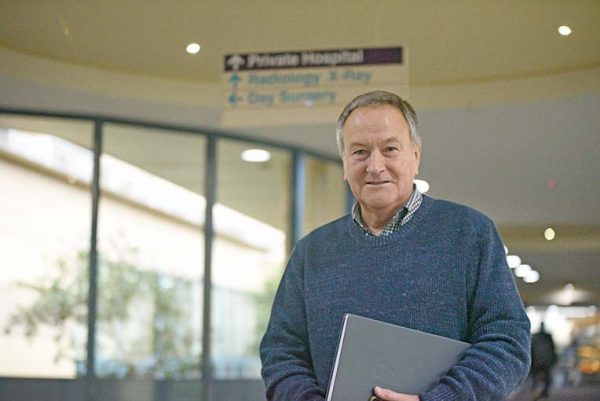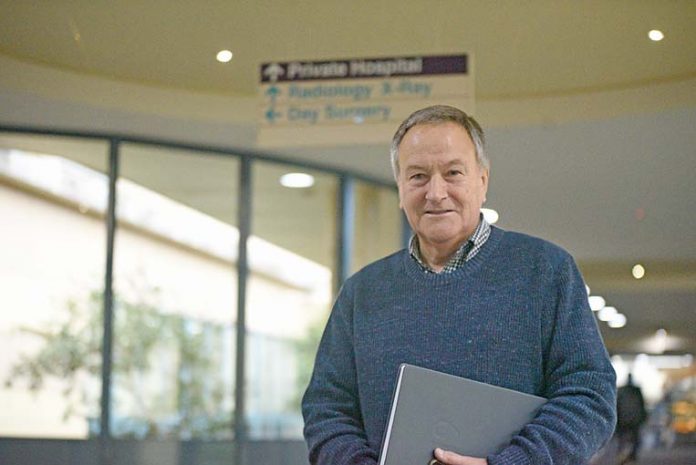
A REGIONAL health leader says patient safety, speciality services and financial accountability will be put under the microscope by the new governing board.
This follows the Limestone Coast Local Health Network governing board formally meeting for the first time this week, which is a historic milestone for the region’s health services.
The new board – made-up of members with diverse expertise – will oversee a budget of more than $150m this financial year.
Board chair Grant King said regional health services should be able to operate within that budget allocation.
He said key issues identified by the board this week included patient safety and quality of care.
“We will be very focused as a board to ensure we have a safe service,” Mr King told The Border Watch yesterday.
Under the new structure, he vowed health services would be “more responsive” to pressure points.
“The board will be much closer to operations … and as a board we will be able to move more quickly,” Mr King said.
Staff on the ground should also see a difference given the dismantling of the centralised model.
“I think staff will be delighted there is a structure in place that will take a real keen interest in what people are doing and want to do,” Mr King said.
The board will also listen to community opinions and information gathered by health advisory councils.
“One of the real measures is how the community continues to develop confidence in the public health system,” Mr King said.
Following sweeping changes over the past two years, he described Mount Gambier Hospital as a “really good” health facility.
“The investment in the emergency department a few years ago was really significant and addressed a real problem in terms of the number of people presenting there,” Mr King added.
He also welcomed the expansion of the renal dialysis unit, which would increase capacity.
Revealing current safety standards were “good”, he said this issue would be monitored closely.
“The board can set benchmarks for standards that need to be met. We will highlight those key measures and we will have staff reporting against those,” Mr King said.
“If they (health professionals) deviate from these benchmarks, they will be accountable.”
Mr King said the board would also foster greater engagement with clinicians and the community.
“The budget for the region is almost set – for the whole region it is well over $150m,” he revealed.
Queried if this funding pool was adequate, Mr King said all health services would say it was “never enough”.
“We have been given a good allocation of money this year … the department has let out as much money as it can to all the health networks,” he said.
Mr King said the money for the health networks was a “little bit more” this year.
Revealing hospitals were allocated funds for certain activities, he said this activity was paid at the national efficient price.
“So if we do things better and smarter we will save ourselves money – if we do not do it so well, it costs us money,” the board chair said.
Historically, Mr King conceded the Mount Gambier Hospital had been “under pressure” in terms of its budget.
“We recognise as a board that Mount Gambier in many respects is like a mini-metro hospital,” he explained.
The use of salaried medical officers and the size of the hospital meant it was more than just a regional hospital.
“It is not quite funded that way, but this will be one of the things we will take up over time,” Mr King said.
He foreshadowed the need to canvass what services needed to be expanded as well as fostering greater collaboration with regional stakeholders and Adelaide-based hospitals.
Mr King said the issue of people accessing health services across the Victorian border also needed attention.
“One of the things we are keen to do is to explore how the services are compatible,” he said.
Regarding this week’s first board meeting, Mr King said it went smoothly.
“We are absolutely delighted by the board and the executive team – we have some very high calibre board members.”








